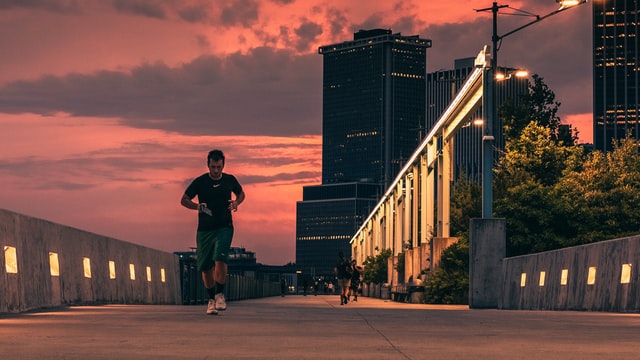Maintaining a good lifestyle is significant to keeping your body fit and healthy. People had a healthy lifestyle in the old days as the food was fresh and organic. Moreover, they had an active lifestyle. Unfortunately, we have a less active lifestyle in today's time. It seems impossible to hold healthy habits since we are busy with jobs and the daily grind.
Eating healthy food and adequate physical activity has of equal importance. However, just like having a healthy breakfast is essential, eating a light meal for dinner should provide the body with essential nutrients so that your body function well while you sleep.
We often hear not to do certain activities after eating a regular meal. However, you might have heard people advising you not to take a bath after eating food, and you might ponder what else you shouldn't do after eating.
Let's explore the activities to avoid after eating and the scientific factors behind avoiding them.
Taking a shower or a bath

You might have been listening not to take a bath after eating but do you know why?
Digestion is an endothermic process meaning it needs a lot of energy and a good amount of blood flow towards the stomach is essential. It’s a fact that your body is already at a slightly increased body temperature when you eat. More simply, it is the warmth you feel in your body after having a satisfying meal, and during this process, the body directs a rise in blood flow to the organs of digestion. Moreover, it stimulates your immune system, relaxes your nervous system, and stimulates your sweat glands.
However, a bath after when you eat hinders your body's natural digestion process. As a result, the internal body temperature rises by a degree or two when you take a bath or shower. This phenomenon is known as hyperthermia. Anecdotally, bathing instead of increasing blood flow to the stomach or digestive tract causes a slight decrease where people feel stomach cramps and heartburn.
An interesting fact about taking a cold shower, it does not increase your core temperature and may not affect blood flow. Instead, studies say it helps boost your metabolism and burn fat from your consumed food.
Immediate walking, running, or exercise

Physical activity can increase the metabolic process, but immediate walking, running, or exercise can negatively impact your body. Therefore, wait for a minimum of half an hour and one-hour minimum for vigorous activity (time depends on mean and type of exercise/workout).
Walking is an ideal activity you can do after your dinner that helps you digest your food and prevent bloating or other digestive issues. However, a heavy workout is not recommended late at night, especially cardio exercises, as it raises the core temperature rigorously. Furthermore, it prevents releasing the hormone which regulates the sleep and wake cycle, so it can significantly disturb your sleeping ability. Additionally, the body gets sluggish and lethargic during heavy exercise as trying to digest food. Moreover, it can lead to stomach pain or cramp, and doing stomach activities can cause nausea and hiccups.
Sleeping right after eating

You often hear from people that eating meals just before sleeping is unhealthy. But do you know how eating before sleep can be harmful?
Going to bed right after a meal is dangerous. It increases the risk of obesity, creates trouble sleeping, and causes heartburn and digestive disorders. Your body needs time to digest food, and when it does not get proper time can cause weight gain. Also, hitting your bed soon after food consumption, hefty meals can never let the body burn calories before sleeping. In addition, it slows down the process of digestion, a bloated belly, and heartburn. Therefore, wait for at least 2 hours and then sleep.
Eating and digestion involve biological shifts that affect energy levels and metabolic processes. So keeping a good healthy eating routine is essential. Therefore, to avoid digestive discomforts, do not drink a lot of water, quick walk or exercise, sleep, or take a shower right after eating should avoid.
